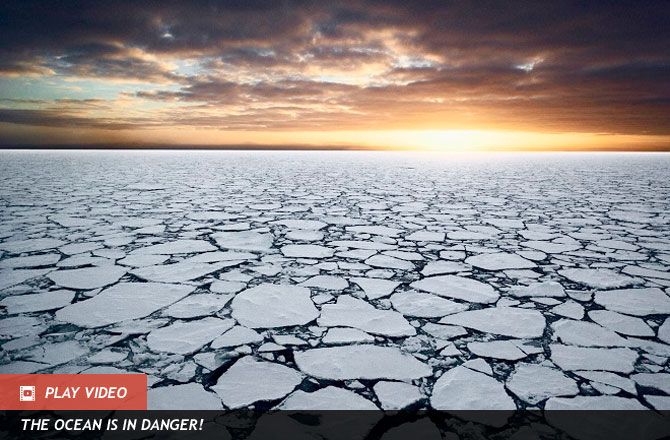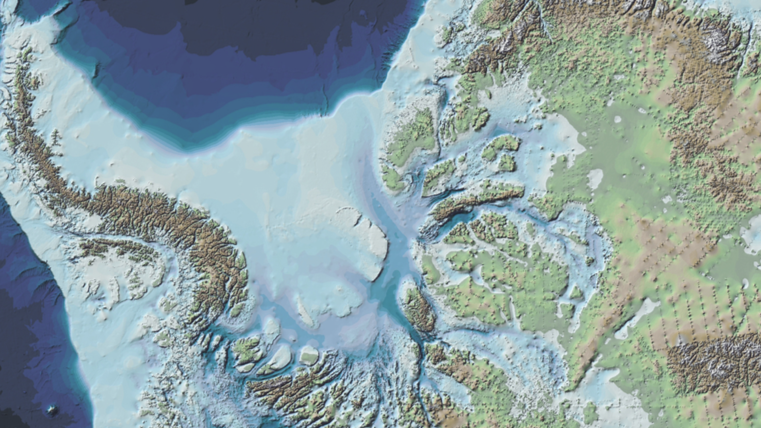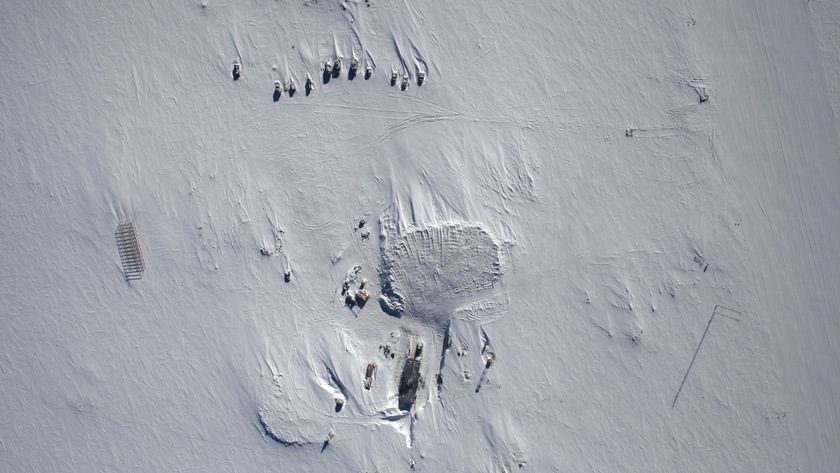DiCaprio, Cameron, Branson: Protect Antarctic Ocean

Academy Award-winning actor Leonardo DiCaprio, explorer and Oscar-winning director James Cameron, and Virgin chief Sir Richard Branson are calling on nations to grant protection to waters off Antarctica at an international meeting in Germany this week.
Writing in the Russian newspaper Rossiyskaya Gazeta, DiCaprio and Grigory Tsidulko of the Antarctic Ocean Alliance note that “the Southern Ocean is one of the most unique and special places on the planet,” and “has remained, until now, relatively untouched because it is so remote and inhospitable. But even that is changing as humanity moves to exploit these last wild and remote places.”
Life on the Ocean Floor Garbage Patch: Photos
Such exploitation includes, particularly, fishing for krill and, more immediately, Patagonian toothfish (generally marketed by the more palatable-sounding name of Chilean sea bass). According to the Lenfest Ocean Program, overfishing appears to be causing declines in the toothfish in part of its range; because of that, because of concerns over the potential impact on the Antarctic marine ecosystem of krill fishing, and because of the desire to protect waters that sustain three-quarters of marine life worldwide, member nations of the Commission for the Conservation of Antarctic Marine Living Resources (CCAMLR) submitted proposals to establish a pair of marine protected areas at the organization’s annual meeting last October.
One such MPA, proposed by the United States and New Zealand, would cover 2.3 million square kilometers of the Ross Sea, including a “fully protected” area of 1.6 million square kilometers (600,000 square miles); if adopted, it would be the largest marine reserve in the world and would almost double the documented area of fully protected ocean worldwide. The second — proposed by Australia, France and the European Union — would designate seven marine protected areas in East Antarctica covering about 1.63 million square kilometers. The fully protected area of the Ross Sea MPA would ban fishing and other extractive activities; the East Antarctica MPA would not technically ban fishing but none is presently being conducted there, and the proposal would require a consensus of CCAMLR to allow fishing to begin within its boundaries.
The proposals received widespread support at the October meeting, but because CCAMLR operates under consensus, it required only one of the 25 members to object for their objection to be stymied – and, in the event, more than one did. So on Monday and Tuesday, CCAMLR delegates are gathering in Bremerhaven, Germany for a special meeting to consider the proposals anew (beginning on Thursday, CCAMLR’s scientific committee discussed the ecological benefits of the reserves).
Sign up for the Live Science daily newsletter now
Get the world’s most fascinating discoveries delivered straight to your inbox.
One of the key holdouts to this point has been Russia, which is why DiCaprio took to the pages of Rossiyskaya Gazeta to argue that “success in Antarctica needs leadership from Russia, President Putin and the world community.” That was echoed by Branson and Cameron who, in an open letter co-signed by ocean explorers Dr. Sylvia Earle, Jean-Michel Cousteau and Capt. Don Walsh, wrote that “Russia has a critical leadership role to play in determining the future of Antarctica. We hope that with your leadership Russia will support the Ross Sea and East Antarctica marine protected area proposals at the Bremerhaven meeting this week.”
Russia, though a pivotal figure, is not the only one yet to be fully persuaded of the merits of the proposal. Its neighbor, Ukraine, is another. So, too, is Norway, which is traditionally a robust defender of the Antarctic environment (and is one of seven countries — along with the United Kingdom, France, Australia, New Zealand, Argentina and Chile — to claim a slice of Antarctic territory) but which in this instance is has been largely silent other than to propose the addition of a “sunset clause” under which both reserves would ultimately expire.
The reserves’ advocates have been resolute in their desire to see the MPAs adopted. Australian environment minister Mark Butler said that “Australia is very proud to stand behind this proposal,” while US Secretary of State John Kerry has been unequivocal in his support.
NEWS: John Kerry Urges Support For Antarctic Reserve
“The Ross Sea is a natural laboratory,” he said recently. “We ignore it at our peril. We are not going to wait for a crisis before we take action.”
This story was originally published on Discovery News.













